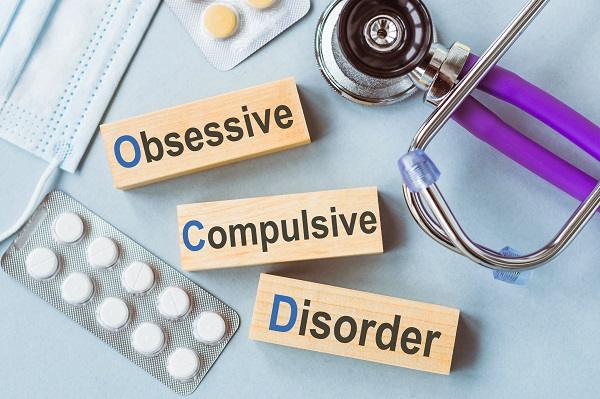Living with OCD can be challenging, with each person experiencing it differently. While therapy and mindfulness play significant roles in managing OCD, medications, particularly SSRIs (Selective Serotonin Reuptake Inhibitors), also stand out as a crucial part of treatment. SSRIs have been recognized for their effectiveness in reducing OCD symptoms and helping individuals regain a sense of normalcy.
In this blog, we delve into the best SSRIs for managing OCD symptoms, their potential side effects, and the typical duration of treatment. Join us as we explore these key aspects, guiding you towards a better understanding and management of OCD.”
Contents
What Is OCD?
Obsessive-compulsive disorder (OCD) is an anxiety disorder that causes people to have intrusive thoughts and behaviors. People with OCD may feel compelled to perform certain rituals or engage in repetitive behaviors in order to reduce their anxiety or to prevent something bad from happening. It includes some symptoms which are:
- Intrusive Thoughts: Unwanted, recurring thoughts that interfere with daily life.
- Repetitive Behaviors: These are physical or mental acts performed in a certain order.
- Avoidance: People may avoid certain activities, people, or places due to fear of triggering intrusive thoughts and behavior.
What Are SSRIs?
 SSRIs are a type of antidepressant medication that works by increasing the level of serotonin in the brain. Serotonin is a neurotransmitter, or chemical messenger, that helps regulate mood and behavior. By increasing serotonin levels, SSRIs may help reduce symptoms of OCD such as intrusive thoughts and repetitive behaviors. These medications are generally well-tolerated and can be taken long-term if needed.
SSRIs are a type of antidepressant medication that works by increasing the level of serotonin in the brain. Serotonin is a neurotransmitter, or chemical messenger, that helps regulate mood and behavior. By increasing serotonin levels, SSRIs may help reduce symptoms of OCD such as intrusive thoughts and repetitive behaviors. These medications are generally well-tolerated and can be taken long-term if needed.
Do SSRIs Work For OCD?
SSRIs work by interfering with the reuptake of serotonin in the brain, which helps regulate mood and behavior. This can lead to an increase in serotonin levels, which may help reduce some of the symptoms associated with OCD, such as intrusive thoughts and repetitive behaviors.
In addition to reducing symptoms, SSRIs for OCD may also help improve overall functioning by increasing motivation and reducing anxiety. It is important to note, however, that SSRIs may not work for everyone and it is important to discuss treatment options with your healthcare provider.
SSRIs For OCD: Best Medications To Manage OCD

Here are some of the SSRIs and their use that are prescribed for OCD:
Fluoxetine (Prozac)
Fluoxetine is one of the most commonly prescribed SSRIs and is used to treat OCD. It works by increasing levels of serotonin in the brain, which can help reduce symptoms such as intrusive thoughts and repetitive behaviors.
Paroxetine (Paxil)
Paroxetine is also an SSRI that is used to treat OCD. It works similarly to fluoxetine but has a slightly different chemical structure. Paroxetine may be more effective for people with severe or treatment-resistant OCD. This medication can help reduce symptoms of OCD and improve functioning.
Sertraline (Zoloft)
Sertraline is another SSRI that is used to treat OCD. It works similarly to other SSRIs by increasing serotonin levels in the brain, which helps reduce intrusive thoughts and repetitive behaviors. Sertraline may be more effective than other SSRIs for people with severe or treatment-resistant OCD. Sertraline is generally well-tolerated and may be more effective for those with severe or treatment-resistant OCD.
Escitalopram (Lexapro)
Escitalopram is an SSRI that is commonly prescribed to treat OCD. It works by increasing levels of serotonin in the brain, which helps reduce symptoms such as intrusive thoughts and repetitive behaviors. Escitalopram may be more effective than other SSRIs for those with severe or treatment-resistant OCD.
Clomipramine
Clomipramine is an antidepressant medication that is often prescribed to treat OCD. It works by increasing levels of serotonin and norepinephrine in the brain, which can help reduce symptoms like intrusive thoughts and repetitive behaviors. Clomipramine may be more effective than other SSRIs for those with severe or treatment-resistant OCD.
Side Effects Of SSRIs?
 Selective Serotonin Reuptake Inhibitors (SSRIs) are commonly used to treat OCD, and while they are generally well-tolerated, they can cause side effects. These vary from person to person, with many experiencing minimal adverse effects. Here’s a detailed list of common and severe side effects associated with SSRIs:
Selective Serotonin Reuptake Inhibitors (SSRIs) are commonly used to treat OCD, and while they are generally well-tolerated, they can cause side effects. These vary from person to person, with many experiencing minimal adverse effects. Here’s a detailed list of common and severe side effects associated with SSRIs:
Common Side Effects:
- Yawning: Frequent and sometimes uncontrollable yawning.
- Shaking: Mild tremors or shaking of hands.
- Fatigue: General feelings of tiredness or weakness.
- Sensitivity to Light: Increased discomfort in bright light.
- Decreased Appetite: Reduced interest in eating or food.
- Weight Gain or Loss: Weight changes, depending on individual reactions.
- Loss of Sexual Drive: Decrease in libido or sexual interest.
- Sweating: Unusual or excessive sweating.
- Headaches: Common, especially during the initial phase of treatment.
- Forgetfulness: Mild memory issues or forgetfulness.
- Difficulty Concentrating: Challenges with focusing or staying attentive.
Severe Side Effects:
- Excessive Bleeding or Bruising: Unusual bleeding, including nosebleeds or bleeding gums, and easy bruising.
- Uncontrollable Shaking: Severe tremors or body shakes.
- Increased Heart Rate: Noticeable increase in heart rate or palpitations.
- Muscle Stiffness: Unusual stiffness or difficulty moving muscles.
- Urinary Problems: Issues with urination, including retention or frequency.
Note: It’s important to closely monitor these side effects and communicate with your healthcare provider about any concerns. The severity and occurrence of side effects can vary greatly among individuals, and your healthcare provider can help tailor the treatment to your specific needs and circumstances.
Which SSRI Is Best For OCD?
 The best SSRIs for OCD will depend on each individual’s needs and response to the medication. Generally, SSRIs such as Fluoxetine (Prozac), Paroxetine (Paxil), Sertraline (Zoloft), and citalopram (Celexa) are most commonly prescribed for OCD.
The best SSRIs for OCD will depend on each individual’s needs and response to the medication. Generally, SSRIs such as Fluoxetine (Prozac), Paroxetine (Paxil), Sertraline (Zoloft), and citalopram (Celexa) are most commonly prescribed for OCD.
Fluvoxamine, paroxetine, and fluoxetine are effective for treating severe OCD, while sertraline and Citalopram are more commonly used for moderate to mild symptoms. It is important to speak with your healthcare provider about which SSRI may be best for you.
How Long Should I Take SSRIs For OCD?
It is important to work with your healthcare provider to determine how long you should take an SSRI for OCD. Generally, it takes several weeks before the full effects of the medication are realized and some people may need to continue taking the medication for months or even years. In addition, some people may find that their symptoms improve a few months after starting SSRI, while others may need to take the medication for a longer time.
Conclusion
Selective serotonin reuptake inhibitors (SSRIs) are a type of medication that is commonly prescribed for OCD. They work by increasing levels of serotonin in the brain, which can help reduce symptoms such as intrusive thoughts and repetitive behaviors. Each individual may respond differently to SSRIs and it is important to speak with your healthcare provider about treatment options. SSRIs are generally well-effective for those with severe or treatment-resistant OCD.
Take care, and don’t forget that you are not alone! OCD is a mental health disorder characterized by obsessions and compulsions. If you have any queries regarding OCD treatment, ERP therapy experienced therapists at OCDMantra can help: Book a trial OCD therapy session
FAQs About SSRIs for OCD
- Are These SSRIs Effective?
Yes, SSRIs are generally effective in treating OCD. They work by increasing the level of serotonin in the brain, which can help reduce OCD symptoms such as intrusive thoughts and repetitive behaviors. However, the effectiveness can vary from person to person, and it may take several weeks to notice improvements. - What If I Have Fear of Taking Medication?
It’s common to have concerns about starting a new medication. If you’re apprehensive, discuss your fears with your healthcare provider. They can provide detailed information about the medication, address your concerns, and may suggest starting with a low dose to monitor how you respond. - Is It Okay To Drink Alcohol While Taking Medications?
Generally, it’s advised to avoid alcohol while taking SSRIs. Alcohol can interfere with the effectiveness of the medication and can increase the risk of side effects like drowsiness and dizziness. It’s best to discuss alcohol consumption with your doctor for specific advice related to your medication. - Who Should Not Take These SSRIs?
SSRIs may not be suitable for everyone. People with certain medical conditions, such as liver disease, seizures, or a history of bleeding disorders, may need to avoid or use SSRIs cautiously. Those who are pregnant, planning to become pregnant, or breastfeeding should discuss potential risks with their doctor. Always inform your healthcare provider about any other medications you are taking to avoid harmful interactions. - What About Children? Which Medication Can They Take?
SSRIs are also prescribed to children and adolescents with OCD, but the choice of medication may differ. It’s crucial to have a child or adolescent evaluated by a pediatric psychiatrist who can recommend the most appropriate medication. Close monitoring is essential, as young people may be more sensitive to side effects, including behavioral changes.


